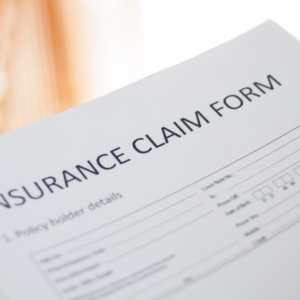Suing a Neighbor for an Injury on Their Property

Property owners are responsible for keeping the property they invite others into safe. If they fail to clear the space of hazards and someone gets hurt, the injured person has the right to sue the negligent property owners responsible for their injuries.
If you or your loved one were injured on a neighbor’s property, you have the right to file a premises liability lawsuit against their insurance company. An experienced premises liability attorney at Munley Law will guide you through the claims process and help you recover fair compensation for your injuries and losses. Call today for a free consultation.
If I’ve Been Injured at My Neighbor’s Home, Can I Sue?
The short answer is, yes, you can sue if you were injured at your neighbor’s home. However, you must be able to prove the four elements of negligence to have a valid premises liability claim. First, we’ll go over what these elements are, and then we’ll dive into what they mean in your personal injury lawsuit:
- Duty of care: The property owner owed you a duty of care. This means the owner had a legal obligation to act reasonably to protect you from harm.
- Breach of duty: The property owner breached their duty of care by failing to act reasonably. This could involve negligence in maintaining the property or failing to warn of hazards on the property.
- Causation: The property owner’s breach of duty directly caused your injury. This means the harm you suffered would not have occurred but for the owner’s negligence.
- Damages: You must show you suffered actual damages due to the injury. These damages could include economic and non-economic damages: medical expenses, lost wages, pain and suffering, and property damage.
Now, what does this mean in your case with your neighbor? Let’s break it down:
- Duty of care: If your neighbor invited you into their home, they have a legal obligation to make sure their home is safe. Here’s the catch: if you were on the property without the owner’s permission, your neighbor does not have a duty to make the premises safe for you.
- Breach of duty: If your neighbor didn’t warn you of any known dangers (i.e., loose railings, broken stairs, slippery floor, etc.), failed to eliminate the dangers (failed to fix the railings or stairs), or failed to maintain their property that led to a dangerous condition, that is a breach of duty to you. If you were injured because of that breach of duty, you may have a valid premises liability claim against your neighbor.
- Causation: Your injuries were directly caused by your neighbor’s breach of duty.
- Damages: If you incurred medical expenses because of the injury, your neighbor may be legally responsible for paying for your medical treatment. Additionally, if you miss any work, your neighbor may be legally obligated to pay money that makes up for the lost income. Other damages include loss of earning capacity, pain and suffering, and loss of consortium in cases of wrongful death. In rare cases, a personal injury lawyer will ask for punitive damages on top of the regular compensatory damages.
You’re Suing Your Neighbor’s Insurance – Not Your Neighbor
Filing a premises liability claim against your neighbor may feel awkward. However, it’s important to know you are not suing your neighbor. You are suing their insurance company. Typically, the property owner’s homeowners insurance policy will cover the damages owed to you.
Remember, you are facing sudden financial burdens that you would not have if you hadn’t been injured on their property. A premises liability claim against their homeowners’ insurance may be the only thing standing between debt and financial freedom.
Filing an Insurance Claim
 There are several steps to filing an insurance claim against your neighbor if you are injured on their property. First, you’ll want to seek medical attention immediately, even if you think your injuries are minor. Injuries may develop or worsen over time. If there were any witnesses around, take down their contact information and get a statement of what happened. Take videos and photos of the accident scene and of your injuries.
There are several steps to filing an insurance claim against your neighbor if you are injured on their property. First, you’ll want to seek medical attention immediately, even if you think your injuries are minor. Injuries may develop or worsen over time. If there were any witnesses around, take down their contact information and get a statement of what happened. Take videos and photos of the accident scene and of your injuries.
The next step is to notify the property owner. Explain the circumstances, your injuries, and any property damage that happened. Next, contact the Munley Law personal injury attorneys. It’s in your best interest to contact an experienced attorney before speaking to anyone at the insurance company. Insurance companies are notorious for lowballing injured victims. A Munley Law premises liability lawyer will protect your rights and make sure you secure a fair settlement.
With your attorney by your side, contact the insurance company and report the incident. Your attorney will take care of all communication with the insurance company. They will file the necessary paperwork and make sure a valid claim is made.
Types of Injuries
Premises liability injuries can range from minor to life-altering and even life-threatening. The most common injuries victims experience are:
Slip and falls
Slip and fall injuries occur because of slippery surfaces, uneven floors, loose floorboards, and other hazards on the property. They can lead to broken bones, head injuries (concussion and traumatic brain injuries), spinal cord injuries (paralysis), and soft tissue injuries.
Dog bites
Dog bites can occur if a property owner fails to restrain or control their dog properly or if the dog is aggressive or vicious. Dog bites lead to puncture wounds, infections, scars, and profound emotional trauma.
Burns
Hot surfaces, scalding liquids, or dangerous chemicals on the property can cause burns. They vary in severity from first-degree to third-degree burns and cause physical pain, blistering, scarring, disfigurement, and infections.
Poisoning/toxic exposure
Poisoning and toxic exposure can occur due to exposure to hazardous chemicals, pesticides, or other toxic substances on the property. They can cause nausea and vomiting, diarrhea, headaches, dizziness, respiratory impairment, organ damage, and death.
Contributory Negligence
 Contributory negligence is a legal doctrine that bars the plaintiff (the injured person) from recovering any compensation if they were – in any way – responsible for the accident. Thankfully, the state of Pennsylvania does not follow contributory negligence laws. Instead, they adhere to comparative negligence laws.
Contributory negligence is a legal doctrine that bars the plaintiff (the injured person) from recovering any compensation if they were – in any way – responsible for the accident. Thankfully, the state of Pennsylvania does not follow contributory negligence laws. Instead, they adhere to comparative negligence laws.
Comparative negligence is a legal doctrine that distributes fault and damages based on the rate of negligence of each party involved in an accident. The court will determine the percentage of fault attributable to you and to the property owner. If you’re found to be partially at fault for the accident and your injuries, your compensation will be reduced by the percentage of your negligence. Let’s look at an example:
- During a BBQ at Mark’s house, Bill falls on an unmarked step between the kitchen and hallway while heading to the bathroom. The step was a known hazard from recent renovations. Bill, who had three beers, suffers a dislocated shoulder and facial cuts totaling $30,000 in medical bills. Mark is found 65% at fault for not marking or fixing the hazardous step, while Bill is 35% at fault due to mild intoxication and refusing Mark’s earlier offer to show him to the bathroom. Under comparative negligence, Bill recovers $19,500 instead of the entire $30,000, with his award reduced by his percentage of fault.
How Can Munley Law Help with My Case?
For 65 years, the experienced personal injury attorneys at Munley Law have been dedicated to helping clients with all aspects of premises liability claims. We know how difficult this time is for you and your family. Our compassionate premises liability lawyers will help you access the resources you need.
From filing the necessary paperwork and building a strong legal case, to negotiating with insurance companies and advocating for your rights in court, the Munley Law personal injury attorneys provide personalized attention throughout the process.
Our law firm offers a free initial consultation with new clients. We will listen to your story, give you an honest assessment of the validity of your claim, and lay out your legal options. Call today to get the process started.

Marion Munley
Marion Munley is recognized for her compassionate representation of catastrophically injured clients and
her steadfast dedication to them and their families. Her advocacy has produced numerous multimillion-dollar recoveries, including one of the largest trucking accident settlements on record. Marion is Triple Board Certified by the National Board of Trial Advocacy in Civil Trial, Civil Practice, and Truck Law, and since 2023 has been named one of Pennsylvania’s Top 10 Super Lawyers by Super Lawyers.









